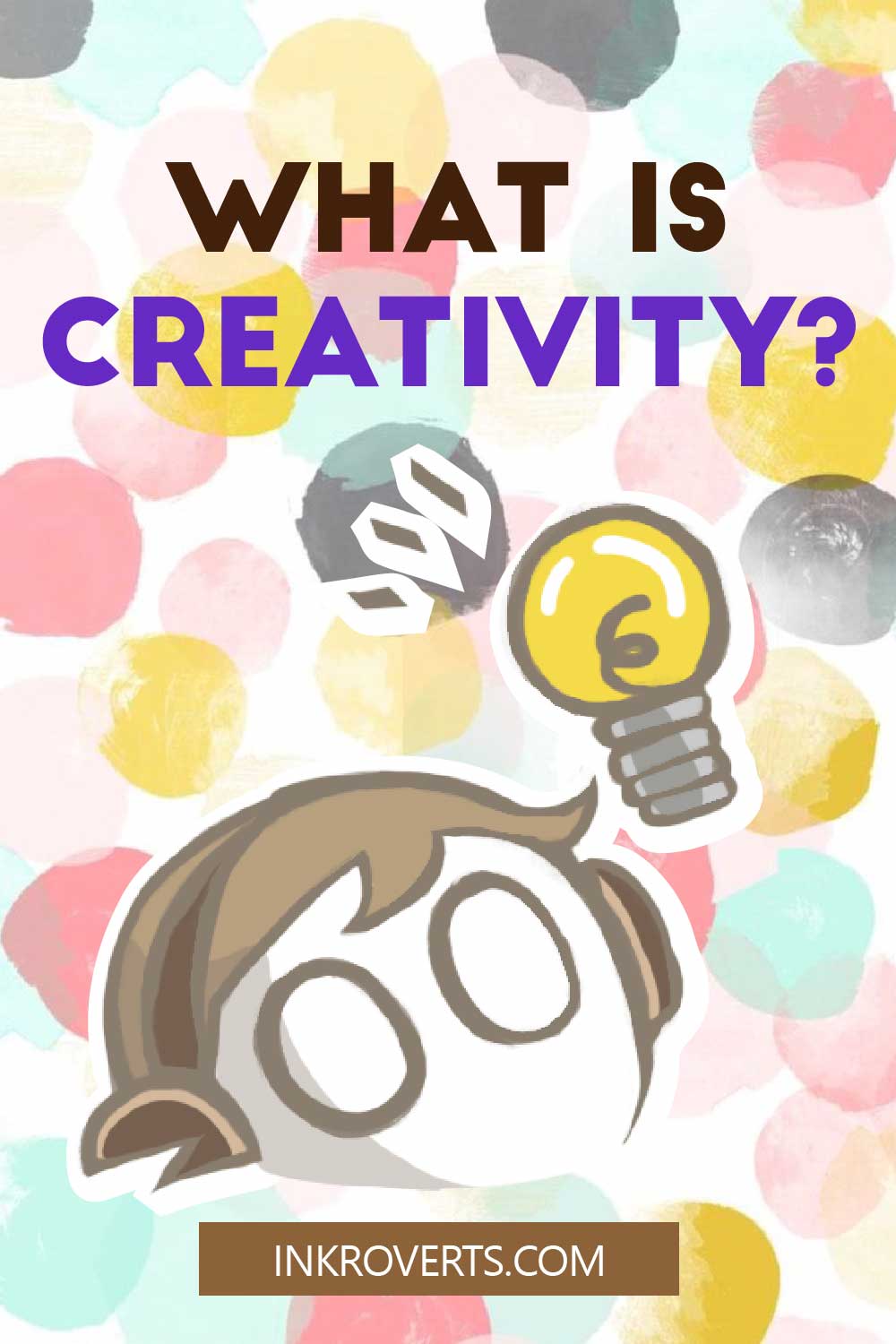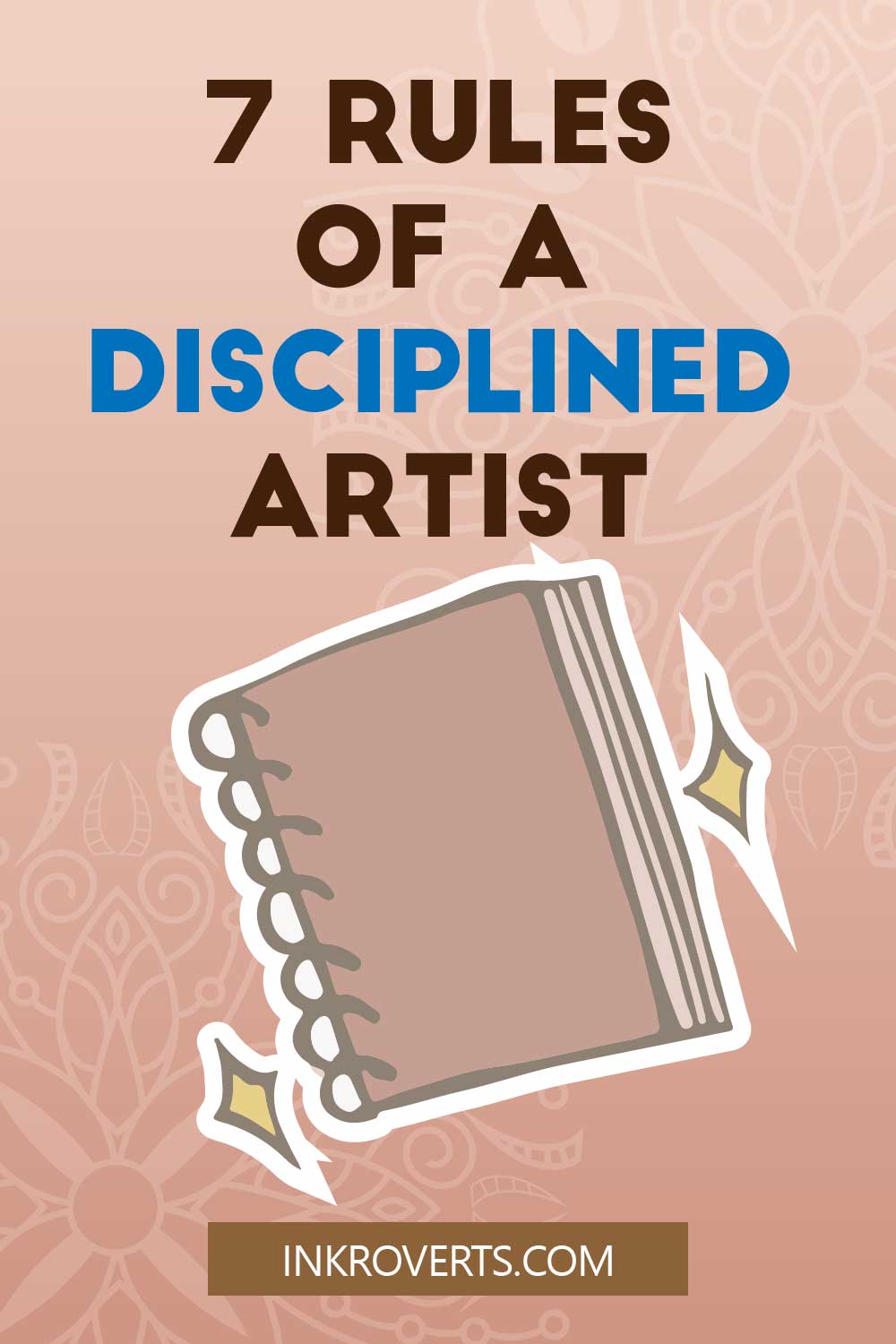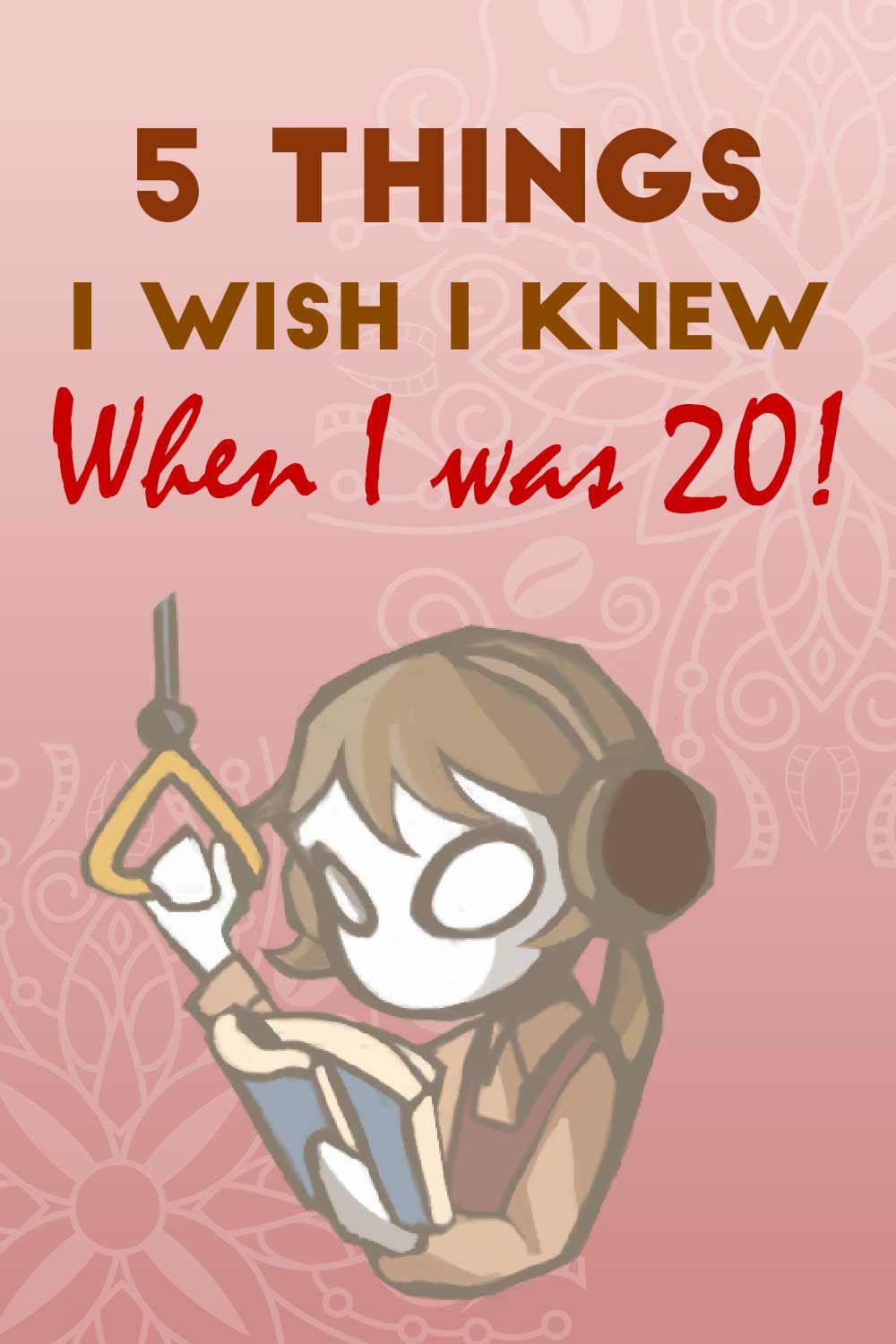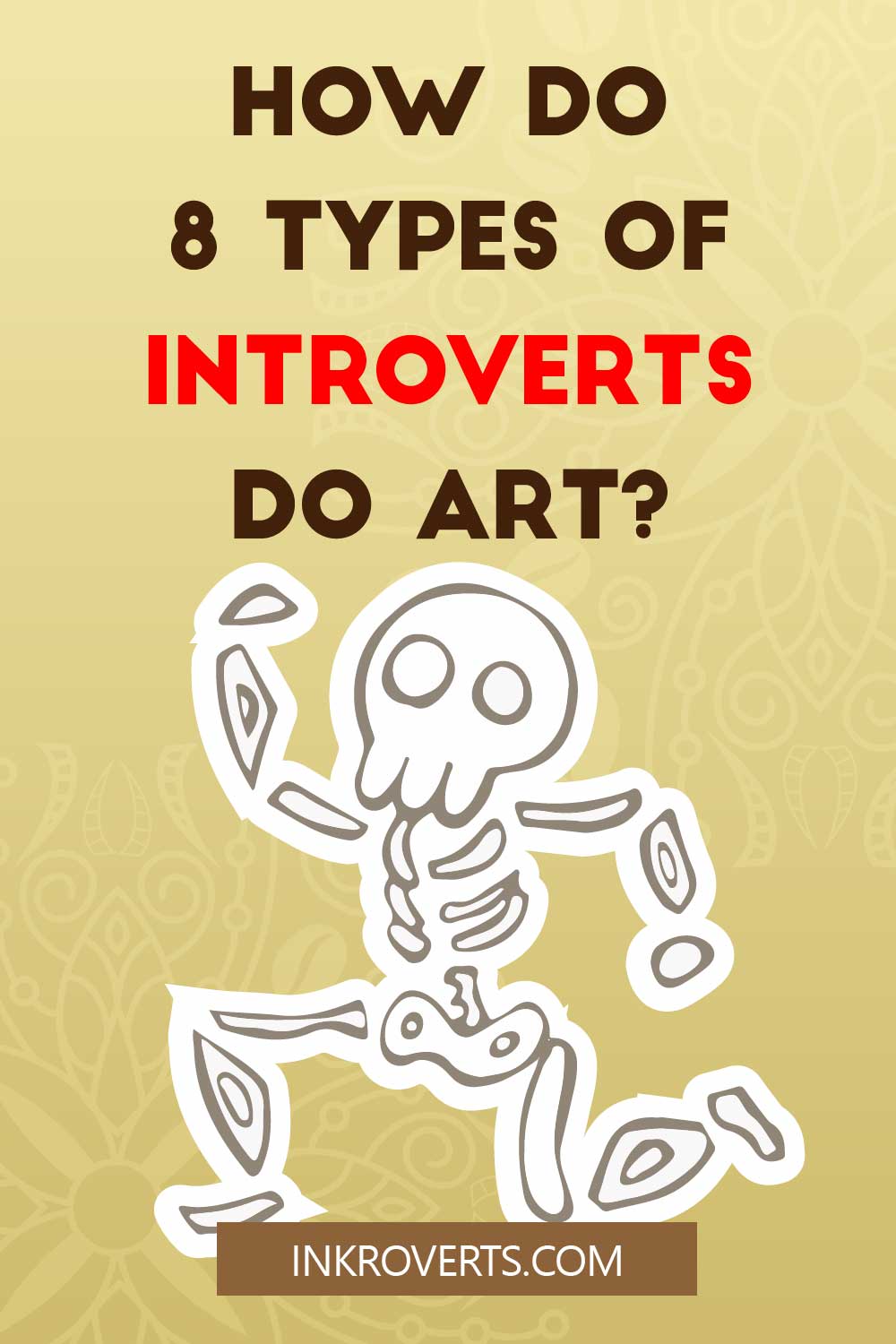
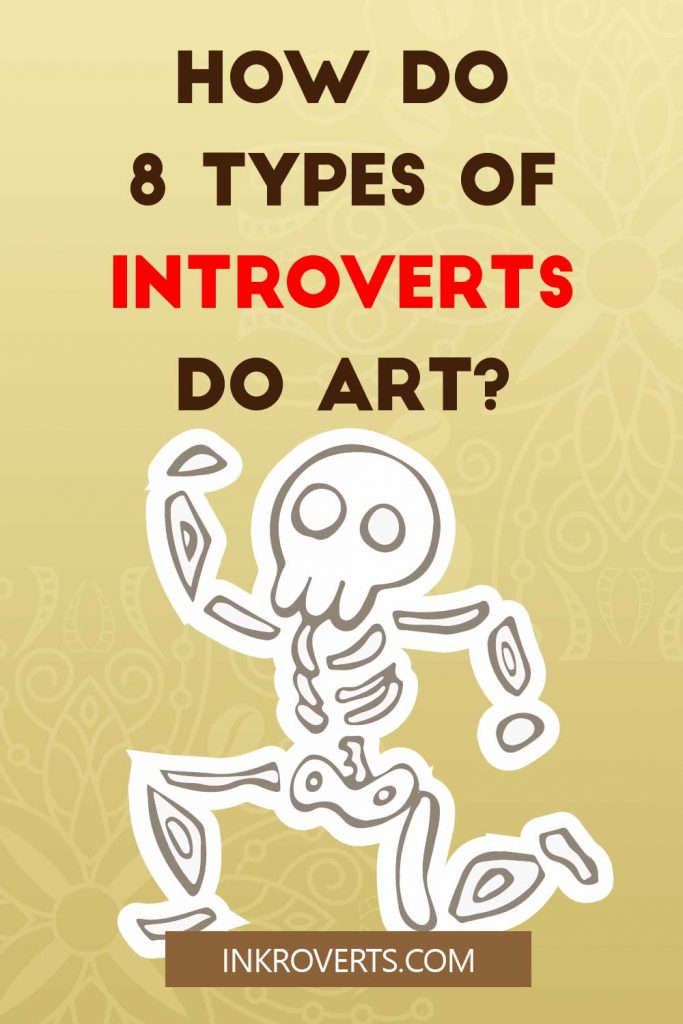
Even among introverts, we have different types. And different types of introverts may create different art.
Below are the 8 types of introverts, detailed with the strengths and weaknesses in doing art, and some suggestions on what type of art you’re likely to be good at.
Does it describe you correctly? Or are you a complete opposite? Comment below to let us know!
Table of Contents
ISTJ – The Inspector
If you are an ISTJ, then you pay more attention to factual details than abstract ideas. You more often rely on logical reasoning rather than feelings. You are conscientious, in a way that you respect plans, rules, and deadlines.
Woah! That’s doesn’t sound very much like a typical artist, does it? But that just means you can be exceptional in areas other artists don’t see! Aside from having good self-discipline, you’re great at observation.
Keen observation provides you with useful info others usually neglect. And that helps you to be mindful of details and concepts that are “too obvious to remember”.
“You see, but you do not observe,” said Sherlock Holmes.
Strength:
Since you’re great at observing details, you have the advantage of being precise in technical and complex illustrations.
Even though people see an artwork as a whole- the moment they first lay eyes on it- they can also see the effort you put in small details.
They’ll immediately learn not to underestimate the small things. When combined, they become magnificent.
Weakness:
Art that is abstract or conceptual may sometimes be difficult to grasp for you.
Being a practical person, you often aren’t that interested in the faraway meaning and hidden emotions in paintings.
But that doesn’t mean you can’t be creative. When it comes to illustrating your message, you can be really good at what you do.
INFJ – The Counselor
You, the INFJ, has really insightful ideals and value. And you hold on to them.
That not only makes you a creative thinker yourself, but you also provide good guidance (be it words or actions) to your peers.
Being not very confrontational, you seek harmony. But that doesn’t mean you aren’t sensitive to the world at large. In fact, you’re really sensitive. And that helps you recognize emotions of yourself and even others.
And that helps with your EQ as well, because emotional intelligence includes identifying correctly how others feel.
Strength:
Because of your innate willingness and practice in reading people, you can easily know what pleases people most.
Graphic designs, decorative illustrations, and even splash art rely on aesthetics a great deal. Sometimes you don’t even need to study design elements- you just know what attracts people.
Moreover, art posted on social media gets more attention and likes the more attractive it looks. In this area, you have a head start!
Weakness:
INFJs tend to be perfectionists. So even though you often have ideas in your head, you don’t always know which to choose.
That alone stalls your time. It might even lead to procrastination.
So don’t think too much about “what should I do to improve”. Because there will always be things to improve on, and you’ll get nowhere just banning your own ideas.
As an INFJ myself, I suggest setting a schedule to limit my time doing each artwork. That way even when I don’t approve of my own work, I still have to submit it (post it online). That’s basically I battle my own perfectionism.
INTJ – The Mastermind
As an INTJ, you’re exceptionally interested in analyzing.
At first sight, this seems you’re better with numbers. But remember that you’re of the intuition type, which means you enjoy thinking about concepts. And you have some really creative ideas.
Analyzing also makes you great at coming up with strategies. And strategies help a long way when you aim to improve your skills.
Your focused attitude may very well help you achieve mastery. Because even though you faced multiple adversities, you still haven’t backed down.
Strength:
One of the areas in art that many artists struggle with- is anatomy. Why? It’s about the rules and restrictions art normally doesn’t have, like the bone structures, the muscle forms, the joints and cartilages that can’t be wrong because you might risk drawing out of proportion.
As an analytical person, you have the patience and decisiveness to deal with this. It’s like studying to be an artist and a doctor at the same time.
Weakness:
A not-so-good result of being too analytical- is that you judge quite harshly. You’re not shy when it comes to saying what’s good and what’s not.
But art is a tricky thing- there’s no definite good and not good. At least in terms of art style.
So you might be picky about choosing your “art mentor”. But be careful not to dismiss too quickly.
ISTP – The Craftsman
ISTP, which means you, are naturally curious. You’re fascinated with finding out how things work. And so you take great joy in taking things apart and building them back.
These little “projects” of yours aren’t wasting your time. In fact, they are safe spaces where you feel free and happy.
You’re also very cautious. It’s like you have learned to be careful not to break the small components when you take apart a gadget.
Because of this, you might be told you’re slow sometimes. But it’s all for taking the time to understand every detail- you need to look through all the nooks and crannies.
Strength:
Because of your passion for building things, you can be extremely confident in practical crafts. You don’t mind getting your desk messy and your hands dirty.
In terms of drawing, anatomy can also interest you. Because it’s about studying the inward structure of human beings. Although, your chance of actually taking a body apart is pretty slim.
Weakness:
Your curiosity makes you enjoy learning new things. But while you’re building your own stuff, you might get bored quickly when the procedure gets repetitive- especially when you work on a long project.
So in order to get that sweet victory after a delayed gratification, you may want to break the goal into small tasks. As in tricking your mind into “doing things quickly”.
INFP – The Idealist
Being an INFP, you’re one of the most spiritual introverts. You recognize and appreciate beauty and virtue.
You think deeply about meanings and abstract ideas. That means you interpret symbolism and metaphors even in your spare time. With these experiences, they’re helpful when you try to express your ideas through art.
But you don’t just think in the corner by yourself. Often, you allow yourself to collect information and feelings of other people. Which builds you a secret library of ideas.
That’s why you sometimes manage to surprise others with your insight!
Strength:
Your constant thinking of values and abstract ideas- makes you practically an expert in generating meaningful artwork.
Concept art needs your creativity. Because it requires more than just pretty-looking paintings. Originality is what makes concept art valuable.
But your strength doesn’t need to be limited in concept art. If you feel ambitious, you can use symbolism in storytelling. In this case, animation, comics, and graphic novels are your playing field.
Weakness:
Being a skillful thinker, you may risk losing yourself in just thinking. And forget about the practical side of things.
Sometimes, you may bury yourself in your passion- like an obsessive genius- and the resulted flow brings you further and further away from daily lives.
INFP also tends to be quite sensitive in terms of receiving criticisms. They don’t necessarily have to be mean comments. But you still reflect deeply- perhaps a bit too deeply- and think yourself much lesser than actuality.
INTP – The Thinker
As an INTP, you pride yourself in being original and inventive. You think a lot, which means you can be extremely creative if you want to.
Instead of stopping at the idea, you take action in solving problems and finding out answers. And that’s exactly what motivates you.
Thinking and processing seem endless to you. And fortunately, you are tireless when it comes to controversial ideas and debate. So the insights you come up with are often less biased and more critical than others.
Strength:
Political illustrations and other storytelling illustrations need INTPs’ practicality and creativity.
Since you have a thorough understanding of complex situations, you’re able to explain them through easy-to-understand ways.
Your honesty and straightforwardness may also be humorous to some people. Because there are a lot of things people can’t bring themselves to say out loud, but feel extremely relatable when you do.
Weakness:
Art may sometimes be frustrating for you. Because it often prompts more thinking and questions, instead of giving you direct answers.
Even when you can make your artwork straightforward, other artists may have other ideas.
In addition, when you have to collaborate with other artists, you may sometimes feel frustrated.
It’s not that you can’t reach a compromise with people, but you tend to keep your more elaborated ideas to yourself because you “don’t know how to put it into words”.
ISFJ – The Nurturer
You are a very loving person, ISFJ! Even as an introvert, you have good interpersonal skills. Because you’re sensitive to your peers’ feelings, and are very kind to care for them.
You’re also on the high end of openness. Which means you’re receptive to new ideas, instead of staying stubborn. This is extremely useful in art, especially when we constantly need new ideas to generate creative work.
One extra point for caring about others- is that you remember people better. What’s good about remembering people?
It allows you to think about human emotions and traits at a deeper level. Because you have a large library of real-life experiences safely stored in your brain.
Strength:
You can be really expressive when making artwork, because of your high openness in emotions and ideas.
Other than concept art, which feeds on original ideas, you can do great in storytelling art, like children books illustrations and graphic novels.
On that path, you can do good to others by teaching your way of accessing emotions through your content!
Weakness:
On the flip side, too much openness makes you easy to be persuaded to try different things.
While this may be good at the start, it may take you longer to decide on which area you want to focus on.
From a career standpoint, it’s much more beneficial to be a master of one, than a jack of all trades.
ISFP – The Composer
ISFP is one of the most artistic introverts! Hooray!
You have a very creative sense of aesthetics. But not exactly following the trend. Instead, you have your own idea, and you’re not shy about admitting it, sometimes even showing it to the public.
In terms of philosophies, you’re keen on exploring different concepts, even taking on adventures personally as a try-out.
That also means you’re more willing to take risk and travel to unknown territories, compare to other introverts. But amidst the danger, you can also find meanings and inspirations.
Strength:
Your imaginative mind makes you people admire your ideas.
In the art industry, people value your out-of-the-box thinking, and your willingness to experiment on different media.
It’s difficult to find a personality that’s both good at interpreting and expressing emotions. But alas, you’re a natural!
You can take advantage of your ability to visualize emotions. In order to make relatable art that moves people’s hearts.
Weakness:
Although creative, sometimes your hyper-real ideas are hard to understand. This makes communication during collaboration with other artists a bit harder.
Also, you can be very unpredictable at times. Because you allow yourself to freely express emotions and ideas. Others may mistake you as being unstable at times.
It’s important to be connected with your fluctuating mood. Although it has its downsides, your sensitivity is what makes you a great artist.
Conclusion –
Where’s Your Passion?
We may have gone through a lot of different “types” of introverts. But please take this with a grain of salt.
Your personality type is only one of the many factors that determine your choice. The others include your environment, your style, your skills, and your preference.
One of the most important, and the one I most recommend you pay attention to- is your passion.
No, that does not mean the “listen to your heart” thing.
As an INFJ, I personally do not believe in following whatever we want, because this behavior has an extremely high risk of mistaking “impulses” with “desires”.
What I mean by “passion”, is the fuel that keeps you going.
When you have the drive to keep going, it doesn’t matter if you’re not a child prodigy. It doesn’t matter if you start up not so well. Heck, it doesn’t matter if you don’t have any formal training in the first place!
This passion is extremely powerful. It drives me to get up at 6 am to draw. It drives me to reach out to artists I’ve never met. It drives me to look for opportunities to learn in every corner.
If you’re not sure whether something is your actual passion. Ask yourself this:
Are you willing to dedicate at least an entire, extra hour to work on it every day? Aside from your usual responsibilities?
Are you willing to keep going, with the revelation that there are thousands, even millions of people who are better than you?
Are you willing to accept the fact that you will have bad days, when you will produce bad results?
If it’s all yes, welcome to the club.

Founder of INKroverts.com
Reference
Check out our other articles
